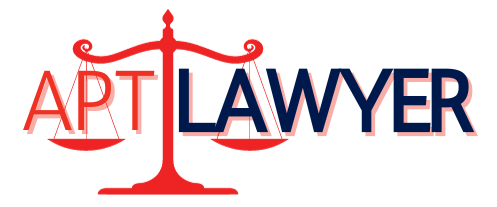Ensuring Compliance: Key Regulations Every Ugandan Business Should Know

Doing business in Uganda requires a thorough understanding of the regulatory framework to ensure compliance and avoid penalties.
Whether you’re a small startup or a large enterprise, being aware of these key regulations is essential for the smooth operation and long-term success of your business. This article outlines some of the most important laws and regulations that every Ugandan business should be familiar with.
1. Business Registration and Licensing
The Companies Act, 2012:
Before starting any business operations, it’s crucial to register your business with the Uganda Registration Services Bureau (URSB) under the Companies Act, 2012. This Act governs the incorporation of companies, defines the duties of company directors, and outlines the processes for winding up a company. Failure to register can result in fines and penalties.
Business Licensing:
After registration, obtaining the necessary business licenses is the next step. The type of license required depends on the nature of your business. For instance, a trading license is mandatory for businesses involved in selling goods and services. Specialized licenses may also be needed for sectors such as health, construction, and finance. Licensing is managed by local authorities or regulatory bodies specific to the industry.
2. Tax Compliance
The Income Tax Act, Cap 340:
Businesses in Uganda are subject to various taxes, including income tax, value-added tax (VAT), and withholding tax. The Income Tax Act outlines the tax obligations for individuals and businesses. Companies must register for a Tax Identification Number (TIN) and file annual tax returns with the Uganda Revenue Authority (URA). Non-compliance with tax obligations can lead to audits, fines, and legal action.
Value Added Tax (VAT):
Businesses with an annual turnover exceeding UGX 150 million are required to register for VAT, as stipulated in the VAT Act. VAT returns must be filed monthly, and businesses are responsible for collecting VAT on behalf of the government. Understanding the applicable VAT rates and exemptions is vital for compliance.
3. Employment Regulations
The Employment Act, 2006:
Employers must adhere to the Employment Act, which governs labor relations in Uganda. This Act covers employment contracts, working conditions, termination, wages, and leave entitlements. It also outlines the rights and obligations of both employers and employees. Ensuring that your employment practices comply with this Act is essential to avoid disputes and legal challenges.
National Social Security Fund (NSSF):
The NSSF Act requires all employers with five or more employees to contribute to the National Social Security Fund. The employer contributes 10% of the employee’s gross salary, while the employee contributes 5%. Employers must ensure timely and accurate remittance of NSSF contributions to avoid penalties.
4. Environmental Regulations
The National Environment Act, 2019:
Businesses, especially those in manufacturing, agriculture, and mining, must comply with environmental regulations as outlined in the National Environment Act. This Act mandates businesses to conduct Environmental Impact Assessments (EIAs) for projects likely to affect the environment. Compliance with environmental standards is monitored by the National Environment Management Authority (NEMA), and violations can result in fines, closure of operations, or legal action.
5. Health and Safety Regulations
The Occupational Safety and Health Act, 2006:
This Act requires employers to provide a safe working environment for their employees. It covers issues such as workplace safety, health inspections, and the provision of protective equipment. Non-compliance can lead to accidents, legal liabilities, and damage to a business’s reputation. Regular training and safety audits are recommended to ensure compliance.
6. Consumer Protection
National Competition Policy, 2014:
Businesses must comply with the national competition policy, issued by the Ministry of Trade and Industries, designed to safeguard the rights of consumers and other players in their industry. This includes providing accurate information about products and services, ensuring product safety, and honoring warranties. The Uganda National Bureau of Standards (UNBS) enforces regulations to ensure that products meet the required standards. Non-compliance can result in product recalls, fines, and loss of consumer trust.
7. Intellectual Property Rights
The Trademarks Act, 2010:
Protecting your business’s intellectual property is crucial for maintaining a competitive edge. The Trademarks Act allows businesses to register trademarks, which provide legal protection against infringement. Additionally, businesses should respect the intellectual property rights of others to avoid costly legal disputes.
In conclusion, compliance with Uganda’s business regulations is not just a legal requirement but also a crucial aspect of maintaining a reputable and sustainable business. Regularly reviewing your business practices, staying informed about regulatory changes, and seeking legal advice when necessary can help you navigate the complex regulatory landscape in Uganda. By ensuring compliance, you not only avoid legal penalties but also build a solid foundation for your business’s growth and success. Whether you’re a new entrepreneur or an established business owner, understanding these key regulations will help you stay on the right side of the law and focus on what truly matters—growing your business.
